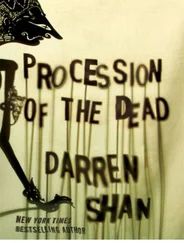Naturally, he was denied the essential dignity of the topmen, who, during their watches, could escape from the suffocating heat below decks, and, in the swaying of the spars and billowing whiteness of the sails, became like weightless giants, brothers of the seabirds in the wind. His physical debility chained him to the deck. Yet, what did it matter to him if he was a mere insect in the eyes of those aloft? He rarely looked up, even absentmindedly, in their direction. He endured his abject state with complete stoicism, making no attempt to evade his present condition. He was beyond all humiliation: his real self existed elsewhere, in a cold lucid dream flying to meet the future, toward France and empires still to come!
As everyone knows, sailors are a rough lot, but not mean-spirited. They tolerated him, paying as little attention to him as to the parrot of the cook Nigger-Nicholas. As long as he did as he was told, they had no quarrel with him. In actual fact, although they did not feel the slightest respect for him, something prevented them from bullying him. Was it his aloofness, his obstinate silence that created a certain distance, or his plump white hands, like a bishop’s, that gave him a mysterious dignity? Perhaps they simply took pity on his physical weakness and his prodigious ineptitude in performing any sort of manual work.
The only creature to show him genuine consideration was Nigger-Nicholas. Not that this meant very much, as Nigger-Nicholas called everyone “Boss,” even his own parrot.
No one knew exactly how old Nigger-Nicholas was. His appearance was quite loathsome. He was tall, but a good half century spent bending over stoves in low-ceilinged galleys had broken him up into several angular segments, like a half-folded pocket rule. Without really being fat, his body swelled out arbitrarily in places, giving him the shape of a semi-deflated balloon. His face was split by a huge gaping mouth; in this grotto, as black and dirty as the maw of his stove, there emerged one or two teeth, like slimy rocks protruding at low tide. The ruined state of his teeth made his speech, already bizarre, all the harder to understand, endowing his rare utterances with a kind of oracular force — as befits a black cook on a sailing ship who, to be true to type, must naturally have a smattering of occult sciences.
Napoleon paid no attention to the boatswain’s hostility or the supercargo’s sarcasm, and he ignored the brutish indifference of the sailors as well as the impertinence of the ship’s boy. But he was equally unaware of the favors which Nigger-Nicholas regularly bestowed on him, and which inspired a certain amount of envy all round. As the cook can dispense a number of much-sought-after privileges — a juicy piece of crackling here, a pig’s trotter there, a spot close to the stove for drying socks, a drop of hot coffee before going out on the dogwatch, etc. — he is always surrounded by a crowd of sycophants seeking his favors. Napoleon benefited from these various acts of kindness without doing a thing to earn them. He accepted them as his due, and most of the time did not even appear to notice them. The strange thing is that, far from discouraging Nigger-Nicholas, this very indifference seemed to increase his solicitude.
Every evening, crushed by the fatigue of the day’s work, Napoleon would escape for a moment from the stuffy atmosphere of the forecastle and lean against the bulwark in the bows to watch the first stars come out. The softness of the tropical azure giving way slowly to the velvet of night, and the glittering of the lonely stars which seem so close to us when they begin to shine in the dusk, left him perfectly cold. He came and stood there purely for the sake of his health; he merely wished to refresh his body, relax his muscles, clear his lungs, and make sure of a good night’s sleep.
If he cared so little for the magnificence of tropical sunsets, it was not because he was naturally insensitive to romantic grand operas. On the contrary! Yet, ever since the momentous night of his escape from St. Helena, he had decided to protect himself behind an impenetrable shell of indifference. At this stage of his uncertain journey “Napoleon” could be nothing more than a shipboard nickname, a grotesque joke of the forecastle.
At that very moment, it was an obscure army sergeant who was cast in the role of the wounded eagle, of the solitary prisoner, of the tragic exile, while the true Emperor existed only as a vision of the future. Between the persona he had shed, and the one he had not yet created, he was no one. For a time, Eugène would have to fill this blank interval with his mediocre existence; he had no right to a destiny of his own; at most he could be granted inglorious little misfortunes and a few petty pleasures.
Thus, he had to deny himself the intoxicating splendors of these sunsets for as long as he remained cut off from his true self, cast off from his own fate, left hanging in this halfway void, forgotten, between sea and sky, in the dull emptiness of this slow boat, among coarse sailors.
During this time in limbo, and until the day when Napoleon’s sun would rise again, he had to survive by relying upon wretched Eugène’s purely physical existence.
Only the slenderest thread was leading him back toward the hypothetical dawn of his future. So far, at every stage of his journey, a new, unknown messenger had emerged from the shadows to show him the route to follow.
For the time being, all he knew were the instructions that had been given to him at the last port of call: when the Hermann-Augustus Stoeffer arrived in Bordeaux, he should look on the wharf for a man with a mustache, wearing a gray top hat, sitting on a barrel, holding a furled umbrella in one hand and a copy of the Financial Herald in the other. This new contact would guide him to the huge secret organization that had been prepared to propel him back into power, and which needed only one spark of his genius to be set in motion.
He still had no idea how this organization worked, and none of his successive guides had been able to enlighten him on the subject; in fact, the fundamental rule of this amazing plot was to observe such absolute secrecy that the conspirators themselves did not know the very object of their association. Although the membership could already be counted in tens of thousands, no two members knew each other. Under such conditions, they naturally had no way of learning that the author of this gigantic scheme — an obscure young mathematician — had already departed this world two years earlier, carried off by brain fever! However, the complex mechanism that his brilliant mind had designed was so perfect, and every detail had been planned with such precision, that the wheels kept blindly turning day after day, month after month, without being affected in the slightest by the disappearance of their anonymous creator.
IN SPITE OF his firm resolve to keep Eugène strictly confined within the limits of his temporary role, there was one occasion when Napoleon’s vigilance was caught off guard. The incident seemed trifling, but it was to leave a scar that was deeper than he probably realized at the time.
The Hermann-Augustus Stoeffer had crossed the Tropic a few days earlier and had now entered the zone where the trade winds were pushing her along steadily. With all her canvas up, the brig was sailing beautifully, heeling under a strong warm breeze which blew with such regularity that the crew hardly ever had to brace the yards. The watches were leisurely; it was as if the boat had made a pact with wind and sea, and had taken charge of the whole operation, leaving the sailors with little to do. And so the journey continued, night and day, sailing home on wings in this state of blessed truce with the elements.
One night, Eugène was awoken by a strong hand shaking his shoulder. Still sleepy, in the dim light of the hurricane lamp that burned night and day in the forecastle, he made out the grinning features of Nigger-Nicholas, who was leaning over him. The cook, in a state of happy excitement, signaled him to get up and follow him right away.
Читать дальше












